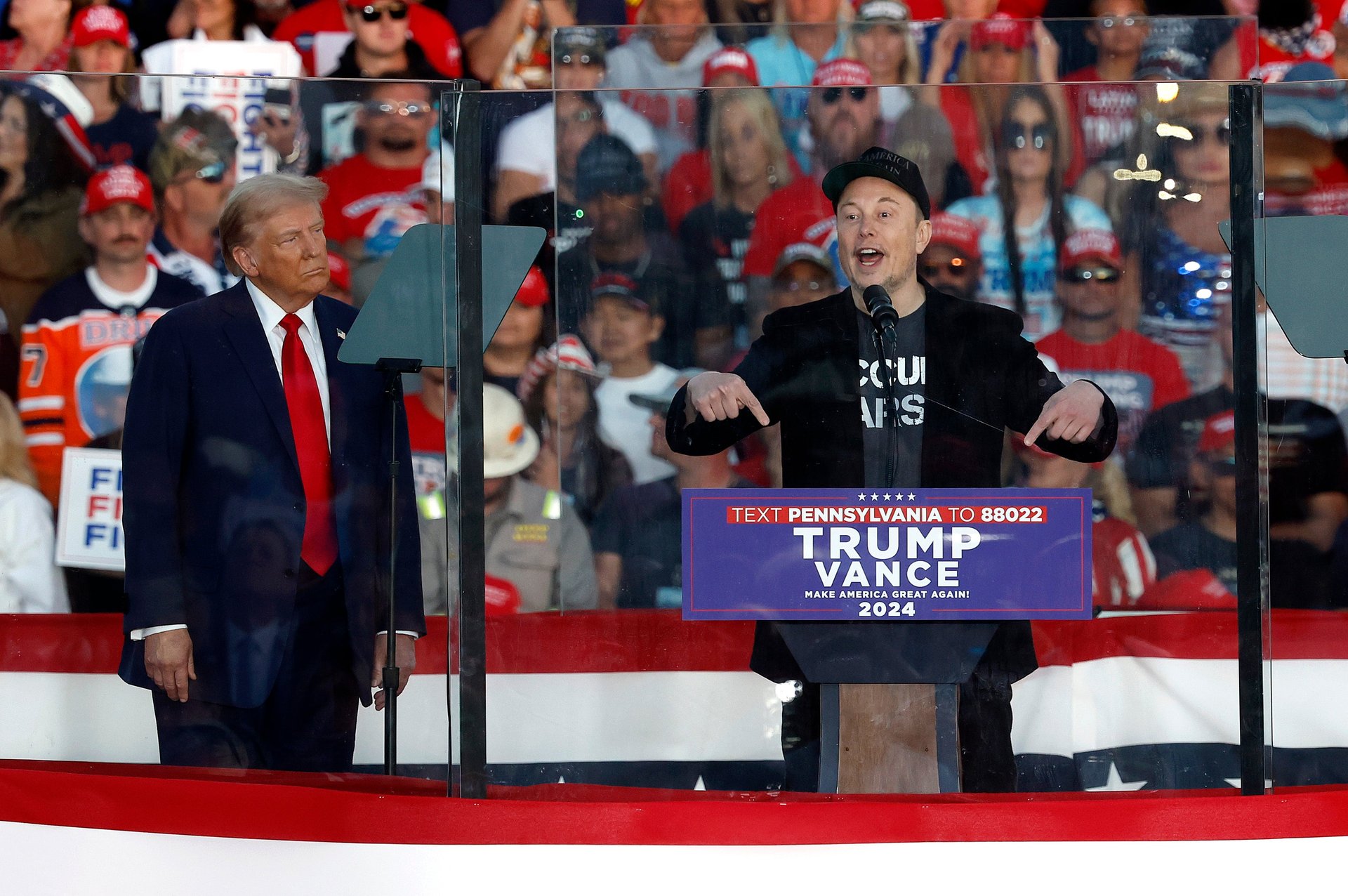Tesla is now worth more than GM, Ford, Toyota, and other car companies — combined
Tesla's stock and its market cap has have been boosted by CEO Elon Musk's ties to President-elect Donald Trump

Tesla (TSLA) stock has been on a tear lately, reaching a $1 trillion market capitalization. The company is now bigger than a solid chunk of other major auto companies — combined.
Suggested Reading
With a valuation of roughly $1.062 trillion, Tesla has reached its highest valuation in more than two years. Its next biggest competitors by market cap are Japan’s Toyota Motor Co. (TM) and China’s BYD (BYDDY), worth $288 billion and $114 billion, respectively.
Related Content
Tesla, which is based in Austin, Texas, has a value that is only matched by combining the market caps of the next 16 most expensive car companies, including foreign firms such as Hyundai Motor Co. (HYMTF) and Stellantis (STLA), as well as domestic rivals such as General Motors (GM) and Ford Motor Co. (F) Without Xiaomi (XIACF) — a consumer electronics company that just made its 100,000th SU7, its first electric vehicle — it would take adding a handful of other companies into the mix to break even with Tesla.
Although Tesla isn’t exactly a slouch, the company itself isn’t responsible for its latest stock boom. It’s all thanks to CEO Elon Musk’s gamble on Donald Trump, who won the presidential election and will take office in January.
Musk devoted both time and money — lots of it — to helping Trump get elected. Tuesday evening, the president-elect announced Musk’s reward: an “outside of government” advisory board that will make recommendations to cut federal spending.
Details about the group are sparse, but Musk has already said he plans to use his slot leading the Department of Government Efficiency (DOGE) to make it easier for companies to streamline federal regulations for driverless vehicles, which Tesla is working on. It also gives Musk some degree of power over the agencies that are regulating his companies, including Tesla and SpaceX.
According to Wedbush Securities analyst Dan Ives, investors can expect tariff negotiations to end with a carve-out for both Tesla and Apple (AAPL), allowing those firms to avoid the brunt of any duties, which Trump has promised will be massive. On the campaign trail this year, Trump proposed raising duties on imports from China by as much as 50% to 60% in total, while adding duties of 10% to 20% against products from the rest of the world.
Trump is set to pull funding from the Inflation Reduction Act, which has fueled electric vehicle investments, and nix the $7,500 tax credit for new EV purchases. According to both Ives and Musk, that’s likely positive for Tesla, given its dominance in the market. Doing so may also boost sales leading up to the end of 2024 as consumers rush to take advantage of the tax credit before it’s canceled.
Although Tesla stock has fallen from its recent heights, trading at $329 a share, it’s still well above where the $242 per share it was trading at before the election. Shares are up by more than 32% so far this year, helping boost Musk’s net worth by $90 billion to $319 billion.
